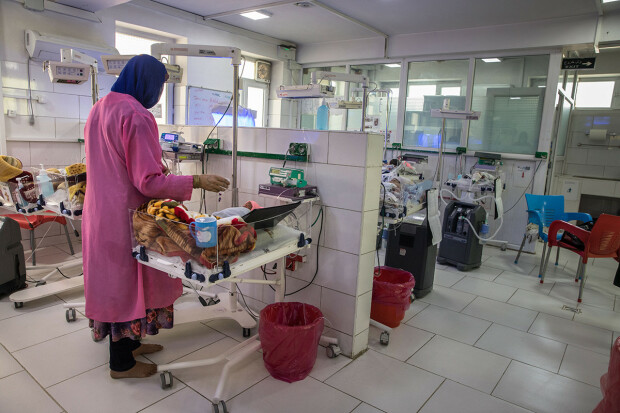
Séverine 4: "Rule number one in politics: never invade Afghanistan"
"Rule number one in politics: never invade Afghanistan"
(21 January 2017)
"Rule number one in politics: never invade Afghanistan" (Harold Macmillan, former Prime Minister of England, 1963)
Where should I begin?
This story started over 4 years ago when Doctors Without Borders established a maternity ward in Khost, Afghanistan, on the border with Pakistan. But this story also began 15 years ago when the United States invaded Afghanistan, starting an endless war that continues to this day. The story also began in 1996 when the Taliban government came to power and less than 1% of Afghan girls were allowed to go to school. The consequences are still evident: it is very difficult to find qualified midwives and female doctors here. Or perhaps the story began in 1980, at the time of the Soviet invasion when they struggled for 9 years. Or maybe the story began even earlier.
Afghanistan, a country of pomegranates and war, as aptly described by a British journalist. It is also a country where women's rights movements have a lot of work to do. Here, on the rare occasion (once a month) that we go outside, you almost never see a woman on the street. And if there is a woman on the street, she is covered from head to toe in a burka and accompanied by a man. Our hospital staff comes to work wearing burkas (which they naturally remove in the hospital since there are only women here) and they must be brought by their husband or a male family member.
This is why Maryam, a female Afghan doctor, couldn't go home after a night shift. Her husband was away to Kabul for 48 hours and couldn't pick her up. According to the man, it wasn't an option for her to make the 10-minute walk home alone. Maryam spent the night at the hospital.
The situation in Kabul is better than in Khost. There are even a few courageous women who dare to drive a car, and Afghanistan even had a female presidential candidate in the previous elections who survived. So there is certainly hope. But a capital city is always more modern than rural areas.
Our hospital handles about 2,000 deliveries per month, which means 60-70 per day! Yesterday, we had women with their twenty-first, eighteenth, and fifteenth pregnancies. In Afghanistan, the question "How many of your children are alive?" is always asked. They respectively had 8, 12, and 11 children alive, and the families agreed to contraception after delivery. Fortunately, because it is not safe to be pregnant for the twenty-second time. The major complications we see in women with many or very many children are significant: bleeding and babies that cannot be born because the contractions are not strong enough. Removing the uterus due to bleeding or rupture is an operation that is needed here 2-3 times a month to save someone's life (usually accompanied by a blood transfusion of a few litres).
Large families, especially with boys, mean everything here. In the neonatology department, we have had a little girl with us for 3 weeks. Today, she weighs 770 grams. At birth, after 6 months of pregnancy, she weighed only 700 grams. Yet she is still here. Most babies that small die in the first few days after birth. But this one is a fighter. "She wants to live," says our paediatricians.
Her mother has returned home. She has given up on the little girl. It's harsh, but it can also be understood in this context. At home, there are a lot of children waiting, and a 700-gram girl is not a priority for the family.
We will not give up on her. Our staff feeds her with formula for premature babies through a feeding tube, and a heat lamp and a self-knitted hat keep her warm.
In 2015, we had 17,000 babies; in 2016, 21,300 babies, and January 2017 has already started very busy. The midwives jokingly let me know why: "9 months after the Afghan New Year." That falls on March 21. Only Afghanistan and Iran follow this calendar.
The busy January leaves us with a practical problem. In a country with very little contraception and a dysfunctional healthcare system, creative solutions are needed to accommodate all patients and their babies.
That's why we also provide financial support to a few smaller health centres so that women can give birth in a safer environment.
Marta and Sophie, two expat midwives, do their paperwork and eat bananas with peanut butter and Nutella. They are waiting for the cook, Nour, to bring a new supply of cigarettes. A smoking woman is unacceptable here, but Nour previously worked for the American army and is not as strict (and he could easily get cigarettes).
While they wait, we drink litres of tea and engage in a lot of conversation. We discuss construction issues (due to space constraints, we plan to expand), cultural issues (midwives arrive late because their husbands are late to bring them), and language issues (the cleaning staff doesn't speak a word of English, so we exchange tips and Pashto words).
Séverine